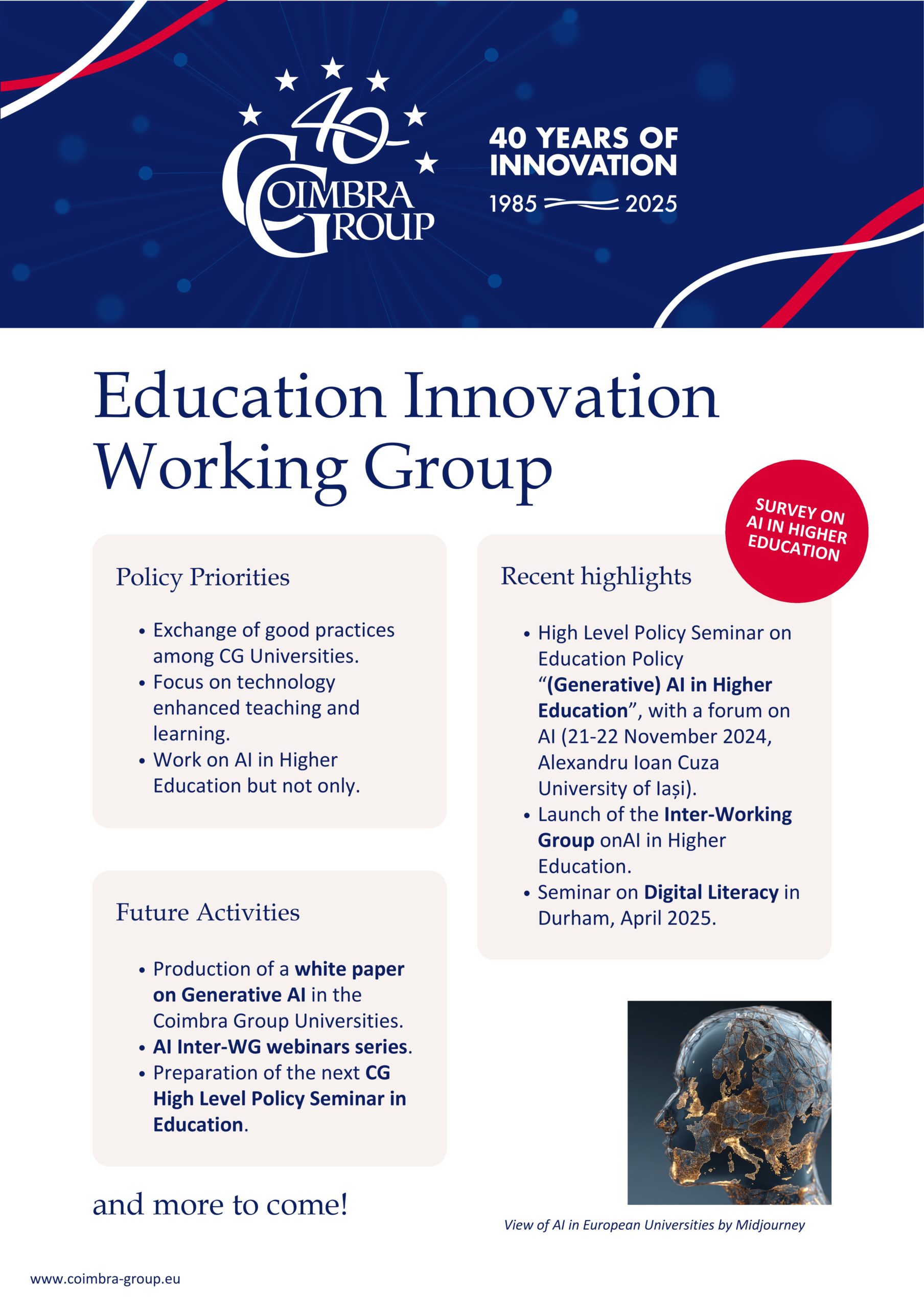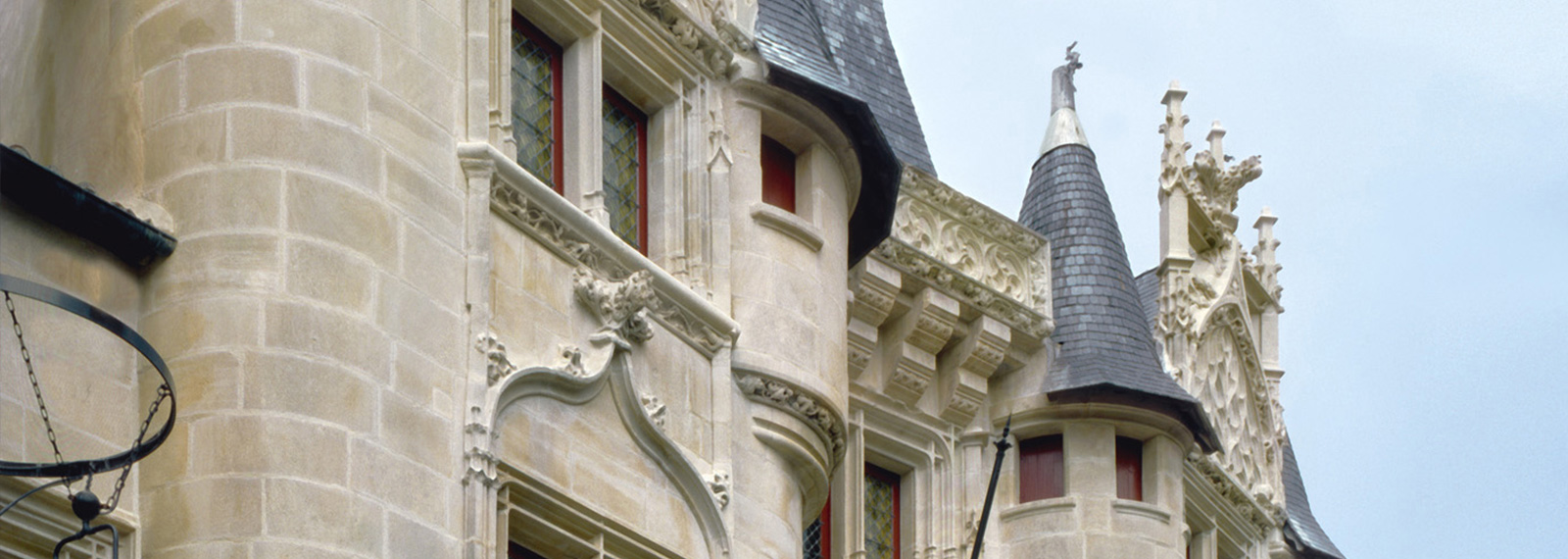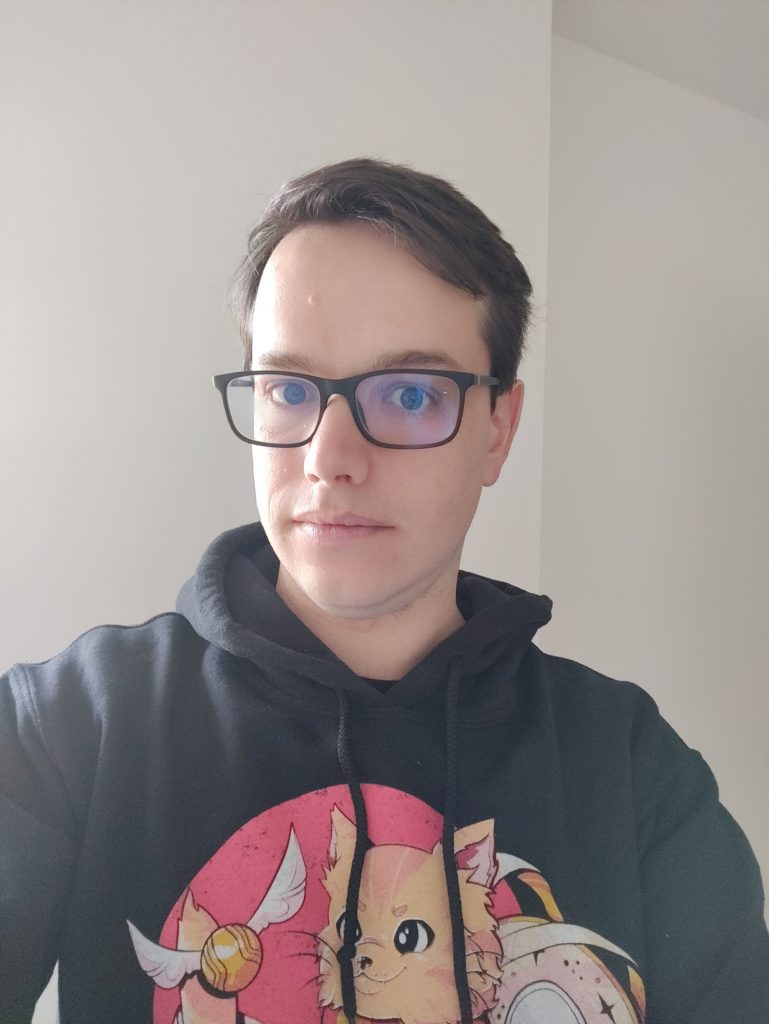Education Innovation
Working Group
Chair: François Lecellier
François Lecellier is Associate Professor in Computer Science at the Institute of Technology of the University of Poitiers in France. His research interests are focused on image, videos and data processing and clustering. He also works in the field of Learning Analytics in the program Elans to allow a “tailor-made” follow-up, essential to better accompany students’ learning trajectories. He is also chair of Coda project regarding links between high schools and universities. In pedagogy, he works on gamification and use of video games to enhance students’ engagement.
Vice-Chair: Vanessa Vigano
Working Group Focus
This Working Group aims to share best practices in pedagogy across various domains, learning spaces, internationalisation of the curriculum, and the integration of technology for teaching and academic pedagogy. Regarding learning spaces, we exchange innovative approaches to classroom design, instructional delivery methods, and student engagement techniques. By sharing insights and experiences related to optimizing learning spaces, educators can enhance the effectiveness of their teaching practices and create environments conducive to student success. The internationalisation of the curriculum involves infusing global perspectives, cultural competencies, and international experiences into the academic programme. We work also on blended mobility and internationalisation at home as possibilities to expand the international aspect of studies.
The WG will focus its upcoming strategic initiatives on advancing technology-enhanced teaching and learning across multiple domains. Central to this effort is the integration of artificial intelligence (AI) into educational practices, while simultaneously developing robust digital literacy programmes that prepare students to navigate an increasingly complex information landscape. We will also work on learning analytics to discuss about student engagement and performance. And the last axis of the work will consider ongoing professional development for educators to deal with those new digital tools.
Priorities for 2025-2026
- Survey on Generative AI in Coimbra Group Universities, production of a white paper.
- Gather information regarding technology enhanced teaching and learning among Coimbra Group Universities.
- Continue the work on AI in Higher Education with the inter-WG on AI.
Recent highlights since June 2024
- Webinar “AI Transforming Teaching in Higher Education. The UNESCO Frameworks” with Francesc Pedró, Director of UNESCO IHELAC, 24 April 2025 (link to replay).
- Seminar on Digital Literacy at Durham University, 4 April 2025.
- CG High Level Policy Seminar on Education Policy “(Generative) AI in Higher Education”, with a project exhibition on Artificial Intelligence, 21-22 November 2024, Alexandru Ioan Cuza University of Iași.
- Launch of the Inter-Working Groups on AI in Higher Education.
- WG meeting at the Coimbra Group Annual Conference and General Assembly, 10 June 2025, University of Bologna.
Ongoing/forthcoming activities 2025-2026
- WG online meeting in the fall 2025 to define the WG priorities for the next years.
- Continuation of the “AI in Coimbra Group Universities” inter-Working Groups activity.
- WG meeting and inter-Working Groups meetings during the Coimbra Group Annual Conference and General Assembly, University of Granada, June 2026.
- CG High Level Policy Seminar on Education, Fall / Winter 2026, on at topic to be defined in connection with the Executive Board.

Contact person at the CG Office: Rúben Castro (castro@coimbra-group.eu)



